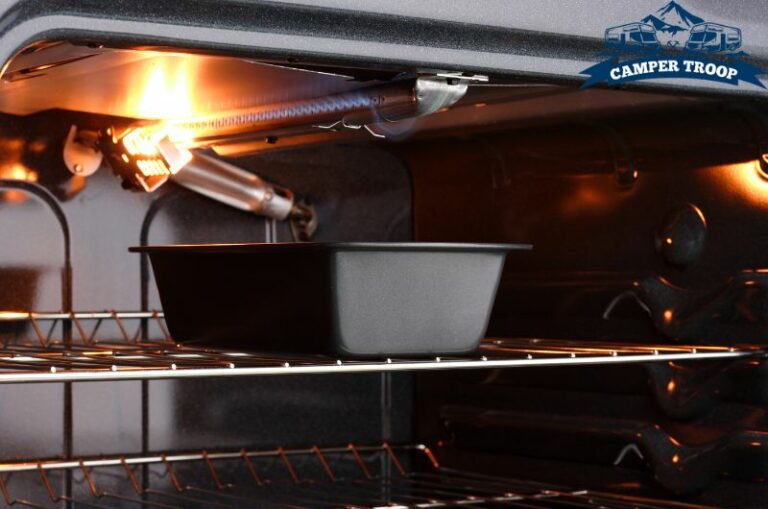7 Common Problems with Residential RV Refrigerators [Solved]
There are tons of differences between RV refrigerators and residential refrigerators. Residential fridges are primarily for use in your kitchen or bedroom, not in your moving van.
If you use a residential refrigerator in an RV, you might face issues like lack of interior space, shortage of power, extra expense to customize functions, etc.. Some issues require modification of the whole setup of the RV interior while some are easy to deal with.
But nothing to worry about, we’re covering all the major problems and the most effective ways to deal with them today. Let’s find out!
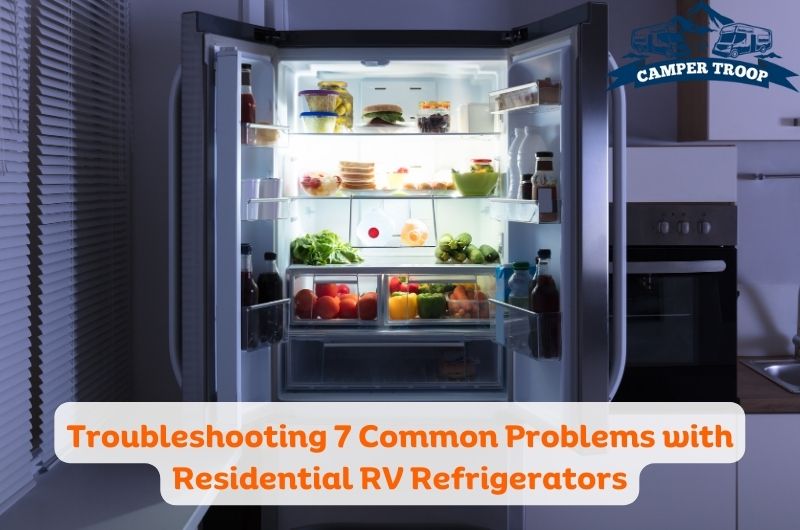
List of Common Residential RV Refrigerator Problems
One thing you must understand is residential appliances like refrigerators are made by judging the environment and demand in the home interiors. They can’t be RV-oriented or something else.
However, modern-day fridges are compatible with RV systems. Yet, there are some issues that might appear pretty often.
Below, we’re highlighting 6 problems you can face when you replace your RV refrigerator with a residential refrigerator.
- Incompatible with older RV models
- Requires stronger power supply
- Can get damaged while driving on uneven surfaces
- Might cross the budget during adjustment
- Requires proper airflow
- Frequent temperature rise in the RV interior
Read Also: Why Is Norcold RV Refrigerator Not Cooling? (Causes & Fixes)
Troubleshooting and Fixes for Residential RV Refrigerator Problems
If you’re still determined to replace your old RV refrigerator with a residential refrigerator, then hats off!
Respecting your decision, let’s show you the details and fixes to all these problems and guides to make sure you carry the residential RV fridge in your van properly.
Check the compatibility first
Older RV models aren’t too good with the latest home appliances, especially resident fridges.
Classic RVs come with refrigeration space and brackets for mostly 8 or 10 cubic centimeters refrigerators. Whereas, regular fridges come with around 20 cubic cm capacity or more.
It means you have to compromise or eliminate space for other essentials if you need to install a brand-new residential refrigerator in place of an old RV fridge.
So, the solution is to check whether the new fridge can fit inside the RV interior or not. If so, then know how much space you need to create inside the van.
Depending on that, customize all the stuff inside and prepare all the connections for the new appliance.
Know the strength of the existing power supply
Fridges that are RV dedicated, can run on both propane and 110-120 V electricity. But residential refrigerators provide cooling via compressors that only require nearly 120 V electricity.
Never expect the batteries installed in your RV to properly support a regular fridge as it might consume more than half of the energy from the battery.
The best thing to do is to use solar panels over the RV top and use solar energy to reduce pressure from batteries and generators.
Also, you should consider upgrading the batteries so that the other functions don’t get low on energy. But the least we can suggest is to use a generator for boondocking if it’s necessary.
And, don’t forget to add the inverter to the fridge as compressors do require inverters to work.
Read Also: Why Everchill RV Refrigerator Light Blinking: How to Fix it?
Try making the fridge travel-friendly
It’s not certain that you’d drive on plain smooth highways only. The locking of the resident fridges isn’t as strong as RV fridges.
Continuous shaking can spill food both inside and outside the refrigerator due to average closure and locking.
Home refrigerators have complex construction that can also get damaged when you drive rough through terrains or muddy roads.
Basically, you need to lock the fridge inside the refrigerator compartment inside the RV properly to reduce such issues. You better install new firm brackets to lock the legs of the fridge.
Along with that, try adding extra padding or layers under the floor area where the fridge stands to let the ground properly hold the fridge and deflect friction waves.
Read Also: What Causes Dometic Fridge Check Light On: How to Fix It?
Check the airflow
Refrigerators that contain compressors do require proper airflow for longevity and performance.
Although it’s too hard to set up a ventilation space for the refrigerator itself, it can also eat up some space for other equipment and components.
You can never place the fridge in a congested area. Also, you have to think of keeping those electronics separate which can increase the temperature. Most importantly, try placing your fridge near a window for longevity.
Make sure the compressor doesn’t get stressed too much
Yes, residential fridge compressors do release hot air into the outside environment. We’ve already mentioned that residential refrigerators demand proper airflow.
Despite that, when you put some extra load on the compressor, it is sure to get heated up and release the temperature outside to keep everything cool inside.
Try not to fill up the complete space inside the refrigerator. Instead, keep a little space empty. Also, clean the ice deposit frequently to offload the compressor.
Read Also: Dometic RV Fridge Not Working On Electric? Causes & Fixes
Expert Tips to Maximize the Lifespan of Residential Refrigerators in RV
Apart from fixing the issues beforehand, there are some things you can keep in your mind to make sure your RV residential fridge lasts more than a decade. Here are the main ones:
- Try running the fridge in economy mode while driving.
- Turn off the ice-making mode if you don’t need it.
- Don’t keep the fridge door open without any reason.
- Do read the owner’s manual before installing the fridge.
FAQs
Now, it’s time to answer some frequently asked questions about using residential refrigerators in RVs and related problems before we wrap things up.
How long does a residential RV fridge last?
Any residential fridge used in RVs can last nearly a decade. But if the proper maintenance is done, you can expect the fridge to last a decade more.
Is boondocking possible with a residential refrigerator?
Yes, boondocking is possible with residential fridges if you are able to attach the right type of power supply to the residential fridge along with a good inverter.
How long can an RV residential fridge run on batteries?
If you use lead acid batteries in the RV, you can run the residential RV fridge for around 8 hours. But if you opt for lithium batteries, the duration can rise to around a couple of days or so.
Final Verdict
You can’t deny that using residential refrigerators in RVs does create some problems that can be a headache to the owner. But who doesn’t want some extra storage for food and beverages on the long tour?
That’s why we’ve shown you the best possible explanations and solutions to each common problem regarding using a home fridge in an RV. Hope this has helped you out and let you make the right decision.
Read Also: Dometic RV Refrigerator Reset: 4 Steps to Get It Done!

Zayan is an accomplished author and a go-to expert for all things RV and camper-related. With a passion for adventure and a knack for problem-solving, he has spent years exploring the open road and fine-tuning his knowledge of recreational vehicles.
Zayan’s writing is a testament to his expertise, offering readers practical solutions to common RV dilemmas. Whether it’s troubleshooting mechanical issues, optimizing space, or planning the perfect road trip, Zayan’s insightful advice and engaging storytelling make him an invaluable resource for both seasoned travelers and newcomers to the world of RVing.

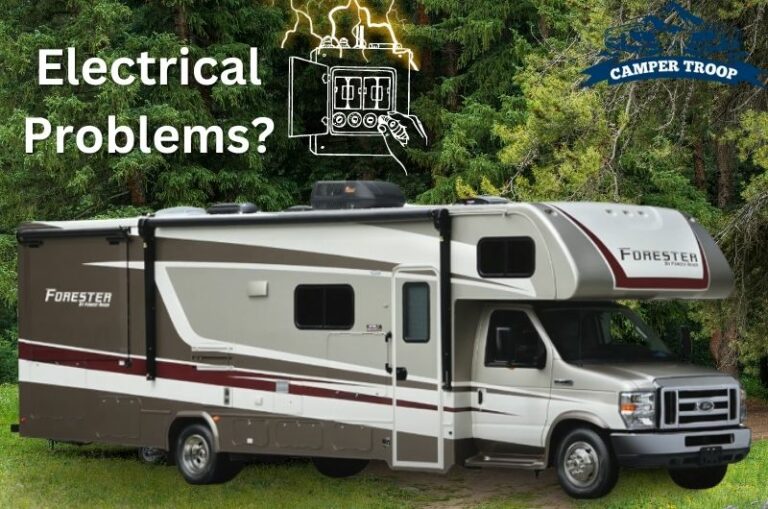
![5 Most Common Problems with RV Aqua-Hot [Cause & Fixes]](https://campertroop.com/wp-content/uploads/2023/09/Rv-Aqua-Hot-Problems-768x509.jpg)
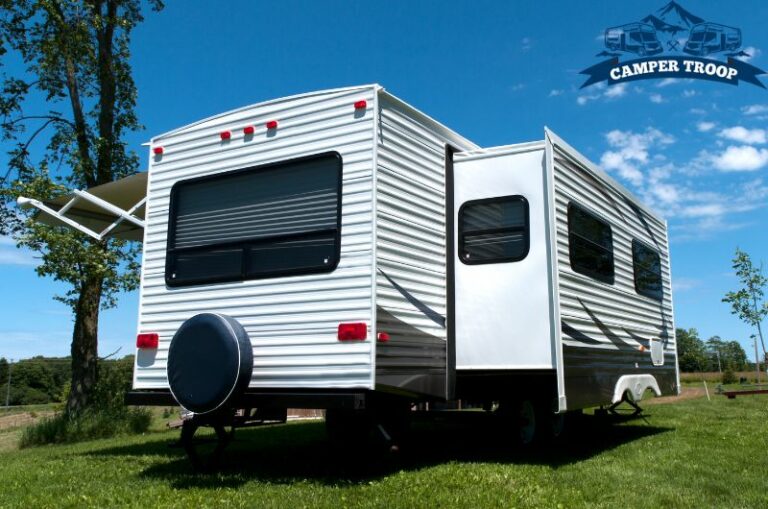
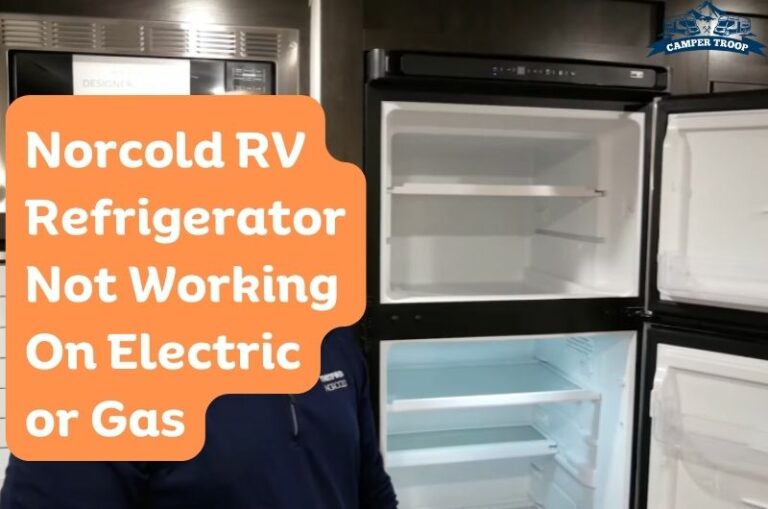
![5 Common Winnebago Lesharo Problems [Solutions Included]](https://campertroop.com/wp-content/uploads/2022/01/Winnebago-Lesharo-Problems-768x509.jpg)
